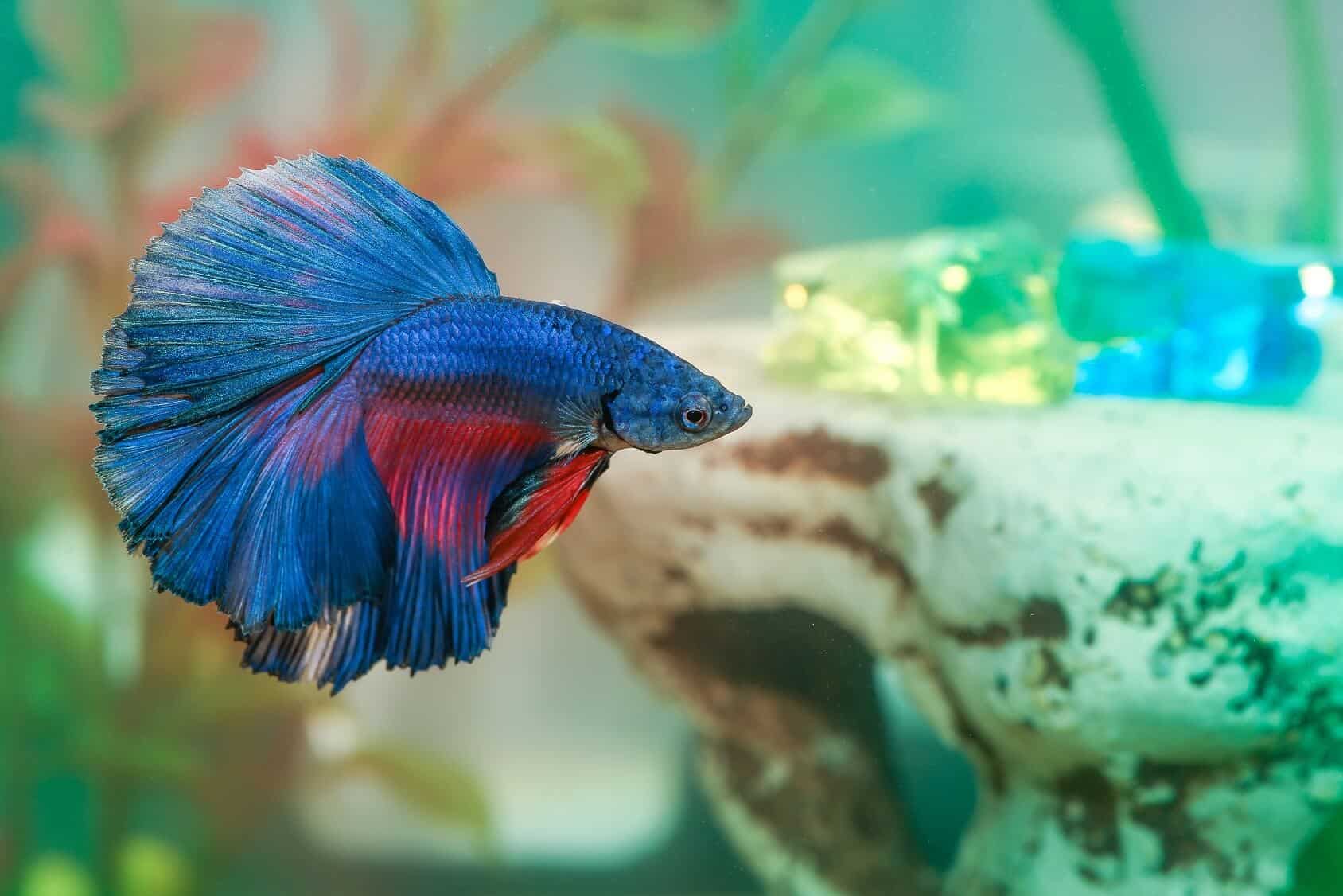You’ve probably seen your betta fish just chilling at the bottom of the tank, and your mind immediately went to the worst-case scenario: “Is my betta fish dead?” Well, hold your horses because that little guy might just be catching some Z’s. Betta fish sleeping is a fascinating topic that many aquarium enthusiasts overlook. Today, we’re diving deep into their world to uncover the truth about their resting habits.
Let’s face it, betta fish are like the rockstars of the aquarium world. They’re vibrant, full of personality, and always ready to strut their stuff. But even rockstars need to recharge, right? Understanding how and why betta fish sleep can help you become a better caretaker for your aquatic buddy. So, let’s break it down.
Before we dive into the nitty-gritty, it’s important to note that betta fish sleeping isn’t as straightforward as it seems. There’s a lot more going on beneath the surface (pun intended). In this article, we’ll cover everything from their sleeping patterns to common misconceptions, so you can rest assured that your betta is healthy and happy.
- Unveiling The Secrets Of Sotwe Ifsa A Comprehensive Guide
- Heather Joy Arrington The Rising Star Whorsquos Taking The World By Storm
Why Do Betta Fish Sleep?
First things first, why do betta fish need sleep? Well, it’s not exactly like our version of sleep, but it’s close enough. Betta fish, like most living creatures, need periods of rest to recharge their energy. During these rest periods, their body performs essential functions like cell repair and maintaining overall health. Think of it as their version of hitting the snooze button.
Another interesting fact is that betta fish don’t have eyelids, so they can’t close their eyes like humans do. Instead, they enter a state of reduced activity, where their metabolism slows down, and they become less responsive to stimuli. This is their way of conserving energy and preparing for the next day’s adventures.
Common Signs That Your Betta Fish Is Sleeping
Now that we know why betta fish sleep, let’s talk about how to identify when they’re actually taking a nap. Here are some common signs to look out for:
- Anyalacey Onlyfans Leaks The Untold Story You Need To Hear
- Hdhub4uin Your Ultimate Destination For Highquality Movies And Entertainment
- They stay motionless for extended periods of time.
- They hover near the bottom or the surface of the tank.
- Their colors may appear slightly dull during rest.
- They might have a slower breathing rate.
Remember, every betta fish is unique, so their sleeping habits might vary slightly. Some might prefer to nap at the bottom, while others might chill near the surface. It’s all about understanding your fish’s personality and behavior.
How Much Sleep Do Betta Fish Need?
Alright, let’s get into the nitty-gritty. How much sleep do betta fish actually need? Research suggests that betta fish require around 12 hours of rest per day. This can vary depending on factors like age, health, and environmental conditions. However, the general rule of thumb is to provide them with a consistent day-night cycle to mimic their natural habitat.
Pro tip: Use a tank light timer to ensure your betta gets the right amount of light and darkness. This will help regulate their sleep schedule and keep them healthy.
Do Betta Fish Dream?
This is where things get a little trippy. Do betta fish dream? The short answer is, we don’t know for sure. However, studies on fish sleep patterns suggest that they might experience something similar to REM sleep, which is the stage of sleep associated with dreaming in humans.
While we can’t exactly ask our betta friends what they dream about, it’s fun to imagine them swimming through underwater kingdoms or battling tiny sea monsters. Who knows? Maybe they’re dreaming about you!
Biological Factors That Affect Betta Fish Sleeping
Age and Health
Age and health play a significant role in a betta fish’s sleeping habits. Younger bettas tend to be more active and may require less sleep compared to older ones. Similarly, if your betta is unwell, you might notice changes in their sleep patterns. This could include excessive sleeping or difficulty resting.
Environmental Conditions
The environment you provide for your betta fish can greatly impact their sleep quality. Factors like water temperature, tank size, and lighting all play a role in creating a comfortable resting space. Ideally, you want to maintain a water temperature between 76°F and 82°F (24°C to 28°C) and ensure the tank is free from stressors like loud noises or sudden movements.
Common Misconceptions About Betta Fish Sleeping
There are a lot of myths floating around about betta fish sleeping, and it’s time to set the record straight. Here are some common misconceptions:
- Bettas sleep with their eyes closed: Nope, they don’t have eyelids, so they can’t close their eyes.
- If a betta is floating at the top, it’s dead: Not necessarily. They might just be taking a nap or resting after a long swim.
- Bettas don’t need sleep: False. Like all living creatures, bettas need rest to function properly.
By debunking these myths, you can better understand your betta’s behavior and avoid unnecessary panic.
Tips for Promoting Healthy Sleep in Betta Fish
Now that you know the importance of sleep for betta fish, here are some tips to promote healthy resting habits:
- Provide a consistent day-night cycle using a tank light timer.
- Ensure the water temperature is within the ideal range.
- Keep the tank clean and free from stressors.
- Offer a balanced diet to support overall health.
By creating a comfortable and stress-free environment, you’ll help your betta fish thrive and enjoy a good night’s sleep (or day’s sleep, depending on their schedule).
Can Betta Fish Sleep Too Much?
Yes, it’s possible for betta fish to sleep too much. Excessive sleeping could be a sign of illness or poor water conditions. If you notice your betta spending an unusual amount of time motionless, it’s a good idea to check their water parameters and observe any other symptoms of illness.
On the flip side, if your betta seems overly active and restless, it could indicate stress or discomfort. Finding the right balance is key to ensuring your betta gets the rest they need without overdoing it.
How to Tell If Your Betta Fish Is Sleeping or Dead
This is a question that haunts many betta owners. How do you know if your fish is just taking a nap or has met its maker? Here are some signs to look out for:
- Check for gill movement: If the gills are still moving, your betta is likely just sleeping.
- Observe the body: A dead betta will usually float or sink unnaturally.
- Wait it out: Sometimes, bettas can nap for hours, so give them some time before jumping to conclusions.
Remember, patience is key. Don’t rush to conclusions unless you’ve observed clear signs of distress or death.
Conclusion: Sleep Tight, Little Bettas
So there you have it, folks. Betta fish sleeping isn’t as mysterious as it seems, but it’s definitely an important aspect of their health and well-being. By understanding their resting habits and providing a comfortable environment, you can ensure your betta lives a long and happy life.
Now it’s your turn. Share your thoughts and experiences in the comments below. Have you ever mistaken your betta’s nap for something more serious? Let’s chat and help each other become better betta caretakers. And don’t forget to share this article with your fellow fish enthusiasts!
Table of Contents
- Why Do Betta Fish Sleep?
- Common Signs That Your Betta Fish Is Sleeping
- How Much Sleep Do Betta Fish Need?
- Do Betta Fish Dream?
- Biological Factors That Affect Betta Fish Sleeping
- Common Misconceptions About Betta Fish Sleeping
- Tips for Promoting Healthy Sleep in Betta Fish
- Can Betta Fish Sleep Too Much?
- How to Tell If Your Betta Fish Is Sleeping or Dead
- Conclusion
- Damiano David Wife The Love Story Behind Italys Heartthrob
- Unveiling The Secrets Of Maza49com Your Ultimate Guide


